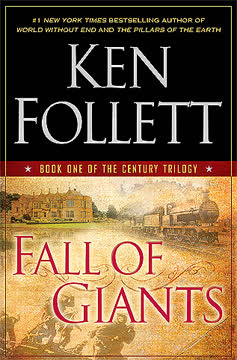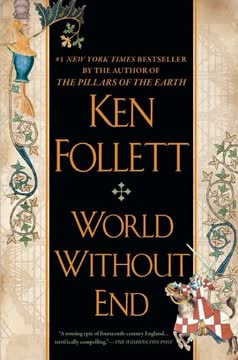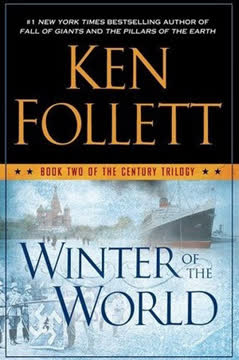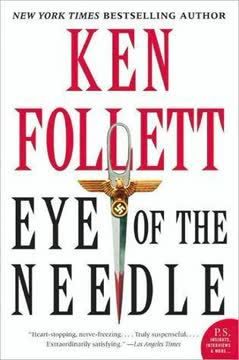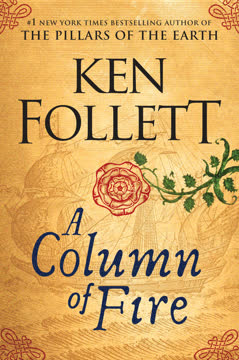Plot Summary
A Quiet Sunday Disrupted
Lord Walden's serene Sunday is interrupted by Winston Churchill, who arrives with a pressing political agenda. Churchill seeks Walden's assistance in forming a military alliance with Russia to counteract Germany's growing threat. Despite Walden's initial reluctance, a letter from the King compels him to consider Churchill's proposal, setting the stage for a series of events that will intertwine personal and political lives.
A Dangerous Visitor Arrives
Feliks Kschessinsky, a Russian anarchist, arrives in London with a mission to prevent a secret military alliance between Russia and England by assassinating Prince Aleksey Orlov. Feliks, shaped by a harsh past, meticulously plans his attack, knowing that his actions could alter the course of history. His arrival introduces a dangerous element into the political landscape, threatening to unravel carefully laid plans.
Secrets and Deceptions Unfold
As the Waldens prepare for Charlotte's debut at court, underlying tensions simmer. Charlotte is unaware of the political machinations involving her family, while Lydia, her mother, harbors secrets from her past that threaten to unravel their lives. The family's facade of normalcy is at risk as personal histories and political ambitions collide, setting the stage for future conflicts.
A Failed Assassination Attempt
Feliks's attempt to assassinate Prince Orlov during a carriage ride with the Waldens fails when Lydia's scream distracts him, and Walden wounds him with a sword. Feliks escapes, leaving the family shaken and prompting Orlov to go into hiding. This failed attempt complicates the negotiations and heightens the tension, as the threat of another attack looms.
The Past Returns to Haunt
Wounded and desperate, Feliks seeks refuge and reflects on his past with Lydia. Their passionate affair in St. Petersburg ended in betrayal, shaping both their lives. Lydia, now Lady Walden, is shocked to see Feliks again and struggles with conflicting emotions as she realizes the danger he poses to her family. The past resurfaces, threatening to disrupt the present.
A Meeting with the Past
Feliks visits Lydia, seeking information about Orlov's whereabouts. Their encounter is charged with unresolved feelings and old wounds. Lydia is torn between her past love and her current life, but ultimately, she inadvertently reveals Orlov's location. This sets the stage for another assassination attempt, as personal and political stakes become increasingly intertwined.
A New Plan Takes Shape
Determined to complete his mission, Feliks concocts a new plan to kill Orlov. He creates a bomb, intending to use it at the Savoy Hotel where Orlov is hiding. Meanwhile, Walden, realizing the threat, takes measures to protect Orlov, setting up a tense confrontation between the two men. The stakes are higher than ever as the characters brace for the impending clash.
A Dangerous Journey Begins
Feliks boards a train to Waldenhall Halt, shadowed by a detective. Realizing he is being followed, Feliks cunningly escapes, leaving the detective incapacitated. His destination is Walden Hall, where he plans to assassinate Prince Orlov. Feliks's journey is fraught with tension, as he navigates the countryside under the cover of darkness, determined to reach his target and change the course of history.
Secrets Revealed, Loyalties Tested
At Walden Hall, Charlotte discovers that Feliks is her biological father, a revelation that shakes her to the core. Despite the turmoil, she decides to help Feliks, driven by her belief in his cause to prevent war. Meanwhile, Lydia grapples with her past as Feliks's lover and the implications of her daughter's involvement with him. The family is torn apart by secrets and divided loyalties, as each member faces the consequences of their hidden truths.
A House in Flames
In a desperate bid to draw out Prince Orlov, Feliks sets fire to Walden Hall. The blaze spreads rapidly, forcing the occupants to flee. Amidst the chaos, Feliks confronts Orlov and shoots him, fulfilling his mission. The fire becomes a symbol of the destruction of old alliances and the birth of new realities. As the flames consume the house, the characters are forced to confront their past actions and the impact on their future.
A Father's Sacrifice
As the fire rages, Feliks risks his life to save Charlotte, his daughter, from the burning house. In a moment of redemption, he passes her to safety before falling into the inferno himself. His sacrifice is a poignant act of love and atonement, highlighting the complex interplay of personal and political motivations. Feliks's death marks the end of his revolutionary quest but leaves a lasting legacy on those he leaves behind.
A New Dawn Emerges
In the aftermath of the fire, the characters face a transformed world. The treaty between Russia and England is signed, but the personal cost is immense. Charlotte, now aware of her true parentage, finds a new path as a translator and advocate for social change. Lydia and Stephen Walden rebuild their lives, grappling with the scars of betrayal and loss. The story concludes with a sense of hope and renewal, as the characters embrace the possibilities of a new era.
Characters
Lord Walden
Lord Walden is a British aristocrat tasked with negotiating a crucial military alliance with Russia. He is a man of duty, deeply committed to his country, but his personal life is complicated by his wife's past and his daughter's coming of age. Walden is a figure of authority and tradition, yet he faces the challenges of a changing world, balancing national interests with personal turmoil.
Lydia Walden
Lydia, Countess of Walden, is a woman of grace and poise, but beneath her composed exterior lies a tumultuous past. Her former lover, Feliks, reappears, threatening the stability of her family. Lydia is torn between her past passions and her present responsibilities, struggling to protect her family from the chaos Feliks brings. Her journey is one of redemption and reconciliation.
Charlotte Walden
Charlotte is the daughter of Lord and Lady Walden, making her debut in society. She is intelligent and curious, questioning the world around her. Charlotte's journey is one of self-discovery, as she navigates the expectations of her social class while grappling with the realities of the world outside her sheltered life. Her loyalty to Feliks and desire for social justice drive her actions.
Feliks Kschessinsky
Feliks is a Russian anarchist driven by a desire to stop a military alliance that he believes will lead to war. His past with Lydia complicates his mission, as old emotions resurface. Feliks is a man shaped by hardship and loss, willing to risk everything for his cause, yet haunted by the life he might have had. His ultimate sacrifice underscores his internal conflict and love for his daughter.
Prince Aleksey Orlov
Prince Orlov is a young Russian admiral in London to negotiate an alliance. He is charming and intelligent, but his life is in danger from Feliks's assassination plot. Orlov represents the hope of a strategic partnership, yet he is caught in a web of espionage and betrayal. His assassination symbolizes the collapse of old alliances and the complexities of political power.
Winston Churchill
Churchill is a rising star in British politics, determined to secure an alliance with Russia to counter Germany. He is persistent and unyielding, willing to use any means necessary to achieve his goals. Churchill's involvement adds a layer of urgency and complexity to the negotiations, highlighting the high stakes of international diplomacy.
Stephen Walden
Stephen is a man of duty and tradition, caught in the crossfire of personal and political upheaval. His discovery of Charlotte's true parentage and Lydia's past with Feliks shatters his world. Despite the betrayal, Stephen's love for his family remains steadfast, as he grapples with the implications of the revelations. His resilience and commitment to his loved ones are central to his character's evolution.
Plot Devices
Political Intrigue
The story is set against the backdrop of pre-World War I Europe, where alliances and power struggles shape the narrative. The political intrigue drives the plot, as characters navigate a world on the brink of war, with personal and national stakes intertwined. This device highlights the complexities of diplomacy and the human cost of political decisions.
Past and Present Collide
The reappearance of Feliks in Lydia's life brings past secrets to the forefront, affecting the present. This device explores themes of love, betrayal, and the inescapable nature of one's past, as characters confront the choices that have shaped their lives. The collision of past and present drives the narrative and character development.
Assassination Plot
Feliks's plan to assassinate Orlov is the central plot device, creating suspense and driving the narrative forward. The failed attempt and subsequent planning highlight the stakes involved, as characters are forced to react to the imminent threat, leading to a climactic confrontation. This device underscores the themes of sacrifice and redemption.
Fire as a Catalyst
The fire at Walden Hall is a central plot device, symbolizing the destruction of old alliances and the birth of new realities. It forces the characters to confront their past actions and the impact on their future. The fire serves as a turning point, driving the narrative toward resolution and highlighting the themes of sacrifice and redemption.
Revelation of Parentage
The revelation of Charlotte's true parentage is a pivotal plot device, reshaping her identity and relationships. It challenges the characters' perceptions of loyalty and love, forcing them to reevaluate their connections. This device explores themes of truth, betrayal, and the complexities of familial bonds, driving the characters toward personal growth and transformation.
Analysis
"The Man from St. Petersburg" by Ken Follett is a gripping narrative that intertwines personal and political stakes against the backdrop of pre-World War I Europe. The novel explores themes of love, betrayal, and redemption, as characters navigate a world on the brink of war. The story delves into the complexities of human relationships, the inescapable nature of one's past, and the sacrifices made for personal and political ideals. Through its intricate plot and well-developed characters, the book offers a poignant reflection on the impact of individual actions on the broader tapestry of history. The narrative's exploration of political intrigue and personal redemption resonates with modern readers, highlighting the timeless nature of its themes.
Last updated:
FAQ
0. Synopsis & Basic Details
What is The Man from St. Petersburg about?
- Pre-War Espionage Thriller: The Man from St. Petersburg is a historical thriller set in 1914, on the eve of World War I, focusing on a desperate attempt to forge a crucial Anglo-Russian military alliance against Germany. Lord Walden, a British aristocrat, is tasked with this secret diplomatic mission, hosting Russian Prince Aleksey Orlov.
- Anarchist's Deadly Mission: Simultaneously, Feliks Kschessinsky, a driven Russian anarchist, arrives in London with a singular goal: to assassinate Prince Orlov and prevent the alliance, believing it will drag millions of Russian peasants into a senseless war. His personal history with Walden's wife, Lydia, adds a layer of intense personal drama.
- Intertwined Fates: The narrative intricately weaves together the high-stakes political intrigue with the personal lives of the Walden family, particularly Lydia's hidden past and her daughter Charlotte's burgeoning social and political awareness, leading to a collision of duty, love, and revolutionary ideals.
Why should I read The Man from St. Petersburg?
- Masterful Historical Immersion: Ken Follett expertly transports readers to pre-World War I London and St. Petersburg, offering a vivid, meticulously researched backdrop of political tension, social upheaval, and aristocratic life. The historical context of The Man from St. Petersburg is both educational and thrilling.
- Complex Character Studies: Beyond the thrilling plot, the novel excels in its psychological depth, presenting characters like Feliks, Lydia, and Charlotte who grapple with profound moral dilemmas, hidden desires, and evolving loyalties. Readers seeking deep character analysis will find much to explore.
- Gripping Suspense and Moral Ambiguity: Follett crafts a relentless pace, building suspense with each chapter as Feliks's assassination plot unfolds against the backdrop of international diplomacy. The story challenges readers to question where true heroism lies, making it a compelling read for fans of espionage and ethical drama.
What is the background of The Man from St. Petersburg?
- Eve of World War I: The novel is set in June-July 1914, immediately preceding the assassination of Archduke Franz Ferdinand and the outbreak of World War I. This historical backdrop provides immense tension, as characters are acutely aware of the impending global conflict and its potential consequences.
- Anglo-Russian Diplomatic Maneuvers: A key historical element is the secret negotiations between Britain and Russia to solidify an alliance against Germany. The British government, particularly Winston Churchill, fears German expansionism and seeks to ensure Russia will fight on the Western Front, highlighting the complex political intrigue of the era.
- Rise of Anarchism and Suffragism: The story vividly portrays the social and political ferment of the early 20th century, featuring Russian anarchists like Feliks Kschessinsky who oppose aristocratic rule and war, and English suffragettes fighting for women's voting rights. These movements underscore the widespread desire for social change and challenge the established order.
What are the most memorable quotes in The Man from St. Petersburg?
- "One can't love humanity. One can only love people.": This epigraph, attributed to Graham Greene, profoundly encapsulates Feliks Kschessinsky's internal conflict and the central themes in The Man from St. Petersburg. It highlights the tension between abstract revolutionary ideals and the messy, personal reality of human connection, especially as Feliks grapples with his rediscovered daughter.
- "I'm afraid he doesn't care how many Russian peasants die so long as England dominates Europe.": Charlotte's stark realization about her father, Lord Walden, reveals the cold calculus of international politics and the class divide. This quote is a pivotal moment in Charlotte Walden's awakening, exposing the moral compromises made by the powerful for national interest.
- "I'm afraid, I want to live. I want to see Charlotte again.": Feliks's internal monologue after a narrow escape marks a profound shift in his character. It signifies the return of his long-lost fear and his re-humanization, driven by his newfound connection to Charlotte. This quote is central to understanding Feliks Kschessinsky's motivations and his emotional arc.
What writing style, narrative choices, and literary techniques does Ken Follett use?
- Propulsive, Detail-Rich Narrative: Ken Follett employs a fast-paced, third-person omniscient narrative, rich with historical detail that grounds the high-stakes plot in a believable 1914 setting. His style balances intricate political machinations with intimate character perspectives, making The Man from St. Petersburg a compelling historical thriller.
- Alternating Perspectives & Foreshadowing: The novel frequently shifts between the viewpoints of key characters—Feliks, Lydia, Walden, and Charlotte—building suspense and revealing their complex inner lives and hidden motivations. Subtle foreshadowing, such as Lydia's unease at Aleks's arrival or Feliks's recurring memories, hints at deeper connections and impending revelations, enhancing the plot analysis.
- Symbolism and Thematic Echoes: Follett uses recurring motifs like the gathering storm (reflecting political tension), the fire at Walden Hall (symbolizing destruction and rebirth), and the contrast between aristocratic opulence and working-class struggle to underscore the novel's core themes in The Man from St. Petersburg of class, duty, love, and the cost of political ideals.
1. Hidden Details & Subtle Connections
What are some minor details that add significant meaning in The Man from St. Petersburg?
- Walden's Road Paving Frustration: Lord Walden's initial irritation over the government taking his money for road paving he would have done himself ("annoying to pay for it twice") subtly introduces the aristocratic disdain for Liberal reforms and the changing power dynamics in England. This detail highlights the clash between traditional landed gentry and the burgeoning state, a microcosm of the larger political intrigue at play.
- Lydia's Flower Room Sanctuary: Lydia's choice of the crude, functional flower room as her "sanctuary" to recover from shocks, rather than her opulent private suite, reveals her deep-seated Russian pragmatism and a yearning for authenticity beneath her English aristocratic facade. It symbolizes her true, less refined self, contrasting with the carefully constructed persona she maintains, a key aspect of Lydia Walden's secrets.
- Charlotte's "Modigliani" Face: Feliks's observation that Charlotte's strong, angular face reminds him of a Modigliani painting is a subtle yet profound detail. Modigliani was known for his elongated, often melancholic portraits, hinting at Charlotte's inherent strength, independence, and perhaps a touch of the "wild" nature Lydia fears, connecting her to a more modern, less conventional beauty and spirit, crucial for Charlotte Walden's awakening.
What are some subtle foreshadowing and callbacks in The Man from St. Petersburg?
- Lydia's Unease at Aleks's Name: When Churchill first mentions Prince Orlov, Lydia reacts with an uncharacteristic "unease" that Walden dismisses. This subtle reaction foreshadows the deep, personal connection between Feliks and Lydia, and the fact that Aleks is Feliks's nephew, making the later revelation of parentage even more impactful and tying into Lydia Walden's past.
- Walden's Father's Tyranny: Walden's reflection on his own tyrannical father and his mother's "going under" subtly foreshadows his own struggles with Charlotte's rebellion and his eventual, painful realization of his own paternal failures. It highlights the cyclical nature of family dynamics and the pressures of aristocratic expectations, a key element in Lord Walden's duty and personal growth.
- Feliks's Lost Red Ball: Feliks's memory of the "red ball" as his first moment of pure happiness, later contrasted with his love for Lydia, is a poignant callback to a lost innocence and capacity for simple joy. This detail underscores his journey from a child capable of love to a hardened revolutionary, and the profound impact of his re-encounter with Charlotte on his emotional landscape, central to Feliks Kschessinsky's motivations.
What are some unexpected character connections in The Man from St. Petersburg?
- Pritchard's Role as Confidante: Walden's majordomo, Pritchard, is more than a servant; he's described as "as much of a friend as a servant could be." This connection, forged during a safari, transcends typical class boundaries, allowing Walden a rare outlet for genuine conversation and revealing a more human side to the Earl, contrasting with his formal interactions with peers and politicians.
- Marya's Unspoken Loyalty to Lydia's Past: Marya, Lydia's governess from St. Petersburg, is the only servant Lydia brought with her. Her "efficient, unsentimental" demeanor masks a deep, almost possessive loyalty to Lydia, rooted in their shared Russian past. Marya's presence is a constant, subtle reminder of Lydia's origins and the secrets she carries, influencing the family dynamics and Lydia Walden's secrets.
- Bridget Callahan's Revolutionary Sympathies: Feliks's landlady, Bridget Callahan, initially appears as a typical Irish working-class woman. However, her casual revelation that her husband "did for a few of the English in his time" and her approval of Feliks's anarchist identity ("I hope it's the bloody King") establishes an unexpected connection of shared anti-establishment sentiment, providing Feliks with a safe haven and highlighting the widespread discontent of the era.
Who are the most significant supporting characters in The Man from St. Petersburg?
- Pritchard, the Loyal Majordomo: Pritchard serves as Lord Walden's indispensable right-hand man, managing the household and acting as a trusted confidant. His Cockney wit and unwavering loyalty, even in dangerous situations (like carrying a pistol for Walden), highlight the complex master-servant relationships of the era and provide a grounding, human element amidst the aristocratic drama.
- Marya, the Stern Governess: Marya, Charlotte's Russian governess, represents the strict, traditional upbringing imposed on aristocratic girls and, more subtly, Lydia's own past. Her rigid adherence to decorum and her role in reporting Charlotte's suffragette activities act as a catalyst for Charlotte's rebellion and her disillusionment with her parents' values, driving Charlotte Walden's awakening.
- Bridget Callahan, the Unwitting Accomplice: Feliks's Irish landlady, Bridget, provides him with shelter and, unknowingly, a crucial link to the police investigation. Her working-class perspective and casual anti-establishment views offer a stark contrast to the aristocratic world of the Waldens, while her eventual, reluctant assistance to Feliks underscores themes of solidarity and the blurred lines of morality.
2. Psychological, Emotional, & Relational Analysis
What are some unspoken motivations of the characters in The Man from St. Petersburg?
- Lydia's Guilt-Driven Respectability: Lydia's fierce adherence to English aristocratic decorum and her desperate attempts to shield Charlotte from "coarse" realities are deeply rooted in her guilt over her past affair with Feliks and the circumstances of Charlotte's birth. Her unspoken motivation is to atone for her "sins" and ensure Charlotte lives a life free from the passion and scandal that nearly ruined her, a core aspect of Lydia Walden's secrets.
- Walden's Need for Paternal Legacy: Lord Walden's intense desire for a son, and his deep, almost possessive love for Charlotte, stems from an unspoken need to secure his family's lineage and legacy, especially since Charlotte cannot inherit the earldom. This motivation makes the revelation of Charlotte's true parentage particularly devastating, challenging his identity and his carefully constructed world, central to Lord Walden's duty.
- Feliks's Search for Meaning Beyond Vengeance: While Feliks is driven by revolutionary zeal and a desire for revenge against the system that tortured him, his unspoken motivation, particularly after meeting Charlotte, shifts towards a yearning for personal connection and redemption. His willingness to sacrifice himself for Charlotte, despite his mission, reveals a deeper human need for love and purpose beyond abstract political ideals, a profound aspect of Feliks Kschessinsky's motivations.
What psychological complexities do the characters exhibit in The Man from St. Petersburg?
- Lydia's Dual Identity and Repressed Passion: Lydia lives a life of profound psychological complexity, maintaining a facade of composed English countess while harboring the repressed passion and guilt of her Russian past. Her reliance on laudanum and her vivid, sensual dream about Feliks reveal the constant internal struggle between her desired respectable self and her true, wilder nature, a deep dive into Lydia Walden's psychological analysis.
- Walden's Aristocratic Blind Spots and Emotional Vulnerability: Lord Walden, initially presented as a confident, rational aristocrat, exhibits a psychological blind spot regarding the suffering of the lower classes and the true nature of his family's happiness. His emotional vulnerability is exposed through his deep love for Charlotte and Lydia, making his eventual disillusionment and pain over their betrayals a powerful exploration of a man grappling with a crumbling world view.
- Feliks's Fearlessness as a Defense Mechanism: Feliks's proclaimed "loss of fear" after his Siberian ordeal is a complex psychological defense mechanism, allowing him to commit acts of violence without hesitation. However, his re-encounter with Charlotte gradually reintroduces fear—the fear of losing her, of dying—revealing that his previous fearlessness was a form of emotional anesthesia, and his re-humanization is a painful but necessary process, central to Feliks Kschessinsky's psychological analysis.
What are the major emotional turning points in The Man from St. Petersburg?
- Lydia's Scream and Feliks's Hesitation: Feliks's first assassination attempt is thwarted by Lydia's scream, which instantly paralyzes him, recognizing her voice from their past. This moment is a major emotional turning point, revealing the enduring power of their connection and introducing the personal stakes that will complicate Feliks's mission and Lydia Walden's secrets.
- Charlotte's Encounter with Annie: Witnessing her former housemaid, Annie, destitute and abandoned after an illegitimate pregnancy, shatters Charlotte's sheltered worldview. This encounter is a profound emotional turning point, sparking her social conscience and leading to her disillusionment with her parents' values, propelling Charlotte Walden's awakening and her embrace of suffragism.
- Feliks's Realization of Charlotte's Paternity: The moment Feliks connects Charlotte's age, birthdate, and resemblance to his sister, Natasha, to realize she is his daughter, is the most significant emotional turning point for him. It reawakens his capacity for love and fear, fundamentally altering his motivations and leading to his ultimate sacrifice, transforming him from a revolutionary idealist to a loving father, a key aspect of Feliks Kschessinsky's motivations.
How do relationship dynamics evolve in The Man from St. Petersburg?
- Walden and Lydia: From Duty to Deep Love and Betrayal: Their marriage, initially one of convenience and duty, evolves into a deep, genuine love on Walden's part, and a qualified affection from Lydia. However, the reappearance of Feliks and the revelation of Charlotte's paternity shatter this dynamic, exposing years of Lydia Walden's secrets and forcing Walden to confront profound betrayal, yet ultimately leading to a fragile reconciliation built on shared love for Charlotte.
- Charlotte and Her Parents: From Obedience to Rebellion and Understanding: Charlotte's relationship with her parents transforms from that of a dutiful, if curious, daughter to one of open rebellion and disillusionment. Her exposure to social injustices and her connection with Feliks lead her to challenge her parents' authority and values. Paradoxically, her confrontation with Lydia about her past ultimately fosters a deeper, albeit painful, understanding between mother and daughter, marking Charlotte Walden's awakening.
- Feliks and Charlotte: From Target to Father-Daughter Bond: Their relationship undergoes the most dramatic evolution. Initially, Charlotte is an unwitting tool in Feliks's plan to find Orlov. The revelation of their biological connection transforms their dynamic into a powerful, albeit brief, father-daughter bond. This connection re-humanizes Feliks and inspires his ultimate sacrifice, highlighting the profound impact of personal love on revolutionary ideals, a central theme in The Man from St. Petersburg.
4. Interpretation & Debate
Which parts of the story remain ambiguous or open-ended in The Man from St. Petersburg?
- Lydia's True Intentions in Revealing Orlov's Location: When Feliks visits Lydia, she "inadvertently" reveals Orlov's hiding place at the Savoy. It remains ambiguous whether this was a genuine mistake born of panic and suppressed emotion, or a subconscious, perhaps even intentional, act driven by lingering feelings for Feliks or a desire for revenge against her father's manipulation. This ambiguity fuels debate on Lydia Walden's motivations and her complex moral landscape.
- The Extent of Feliks's "Re-humanization": While Feliks clearly re-experiences fear and love for Charlotte, the novel leaves open the question of whether this truly transforms his core revolutionary ideology or merely complicates it. His final "satisfied" look as he falls into the fire could be interpreted as a father's sacrifice, a revolutionary's triumph, or a complex blend of both, inviting Feliks Kschessinsky's motivations analysis.
- The Long-Term Impact on Walden's Character: After the profound betrayals and the loss of his perceived daughter, Walden's future emotional state is left somewhat open. While he rebuilds Walden Hall and has another son, the narrative hints at the deep scars left by the events of 1914. The epilogue suggests a continuation of his aristocratic life, but the psychological cost of his experiences is implied rather than fully resolved, prompting reflection on Lord Walden's character development.
What are some debatable, controversial scenes or moments in The Man from St. Petersburg?
- Lydia's Forced Marriage and Its Justification: The scene where Lydia's father forces her to marry Walden to save Feliks from torture is highly controversial. It raises questions about the morality of sacrificing one's child for a perceived greater good (family honor, social standing) and the brutal power dynamics within aristocratic families. This moment is central to understanding Lydia Walden's secrets and the societal pressures of the time.
- Feliks's Decision to Use Charlotte: Feliks's internal struggle and ultimate decision to manipulate Charlotte to discover Orlov's location, despite realizing she is his daughter, is a deeply debatable moment. It forces readers to confront the ethical boundaries of revolutionary action and whether the "greater good" can justify personal betrayal, offering a complex Feliks Kschessinsky motivations analysis.
- The Police's Brutality Towards Suffragettes: The vivid description of the police and male bystanders assaulting suffragettes during the march, including explicit sexual
Review Summary
The Man from St. Petersburg is a thrilling historical novel set in London before World War I. It follows a Russian anarchist's attempt to assassinate a prince and prevent Russia from entering the war. The book explores themes of love, politics, and social class, with well-developed characters and an intriguing plot. Readers praise Follett's ability to blend fiction with historical events, creating a suspenseful and engaging story. While some find certain plot elements implausible, most consider it an entertaining and thought-provoking read that showcases Follett's storytelling skills.
Download PDF
Download EPUB
.epub digital book format is ideal for reading ebooks on phones, tablets, and e-readers.


